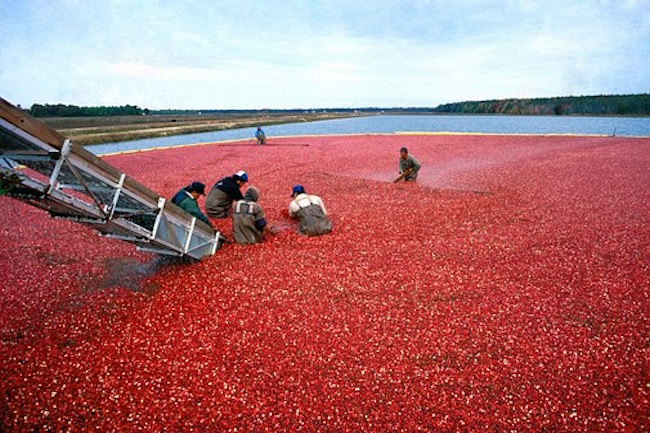Could cranberries combat superbugs? by Dr. Joseph Mercola for Mercola
Finding a drug to either kill harmful bacteria or slow their growth has been a priority for medical practitioners for thousands of years. Not all antibiotics have been effective or even safe, although herbs, honey and moldy bread poultices used in ancient Greece, Rome, China and Egypt were used with some success.1
Needless to say, as scientists experimented with treatment possibilities and resorted to things like animal feces, heavy metals like mercury, bismuth and arsenic to eradicate sexually transmitted diseases such as gonorrhea and syphilis via specially designed syringes, the “administration and side effects often proved worse than the disease.”2
The Journal of Antimicrobial Chemotherapy references many attempts over centuries to nail down a definitive antibiotic, and several showed great promise, such as Pyocyanase, derived from a green bacteria isolated from injured peoples’ bandages, which slowed the growth of other microbes. “They grew the organism (Pseudomonas aeruginosa) in batches and used the supernatant as a medicine, with mixed success.”3
Sulfa drugs such as a prominent one called Prontosil, first tested in 1935, also showed promise.4 At times, catastrophic illnesses made the search more desperate, as when an herb called qinghaosu (artemisinin) used for millennia in traditional Chinese medicine (TCM), was tried and found to be a potent treatment for malaria as late as the 1970s.5
But since the discovery of penicillin in 1929 and its mass production and distribution in 1945,6 not only the study of medicine has changed, but the world.
Frontiers in Microbiology suggests that antimicrobials could be called the most successful chemotherapy agents since the study of medicine began, noting, “It is not necessary to reiterate here how many lives they have saved and how significantly they have contributed to the control of infectious diseases.”7
‘Germs will always look for ways to survive’
However, overuse has created a dire situation: The successes have been “marred by the emergence of hard-to-treat multiple antibiotic-resistant infections.”8 In fact, as the U.S. Centers for Disease Control and Prevention observes, “Germs will always look for ways to survive and resist new drugs.”9
According to researchers at McGill University, antibiotic resistance is undermining decades of progress in fighting bacterial infections. Antibiotics are used not only in medicine but in agriculture. In fact, methicillin-resistant Staphylococcus aureus (MRSA) and other superbug infections have been spreading rapidly among people both inside and outside of hospital settings.10 McGill scientists asserted:
“We are on the cusp of returning to a pre-antibiotic era in which minor infections can once again become deadly. Therefore, countering the fall in antibiotic efficacy by improving the effectiveness of currently available antibiotics is a crucial goal.”11
But in May 2019, a familiar plant-based product was found to make bacteria more sensitive to antibiotics and prevent resistance. Testing the popular belief that cranberries, even more than the juice, might be effective agents against painful and often debilitating urinary tract infections(UTIs),12 the researchers wanted to see how its compounds would stand up against some of the most virulent strains.
Cranberries are tapped to help fight pathogenic bacteria
The journal Advanced Science13 reports that cranberries — or more specifically, the proanthocyanidins in cranberries — are very effective in the fight against pathogenic bacteria. EurekAlert explains results from the study:
“Countering the fall in antibiotic efficacy by improving the effectiveness of currently available antibiotics is a crucial goal … When treated with molecules derived from cranberries, pathogenic bacteria become more sensitive to lower doses of antibiotics. What’s more, the bacteria don’t develop resistance to the antibiotics.
Given the popular belief that drinking cranberry juice is helpful against urinary tract infections, the researchers sought to find out more about the berry’s molecular properties by treating various bacteria with a cranberry extract. The bacteria selected for study were those responsible for urinary tract infections, pneumonia, and gastro-enteritis (Proteus mirabilis, Pseudomonas aeruginosa, and Escherichia coli).”14
According to Nathalie Tufenkji, McGill chemical engineering professor and the study’s lead author, “Normally when we treat bacteria with an antibiotic in the lab, the bacteria eventually acquire resistance over time.” But when her team treated these bacteria with a combination of an antibiotic along with a cranberry extract, they were surprised to be able to report that “no resistance developed.”15




